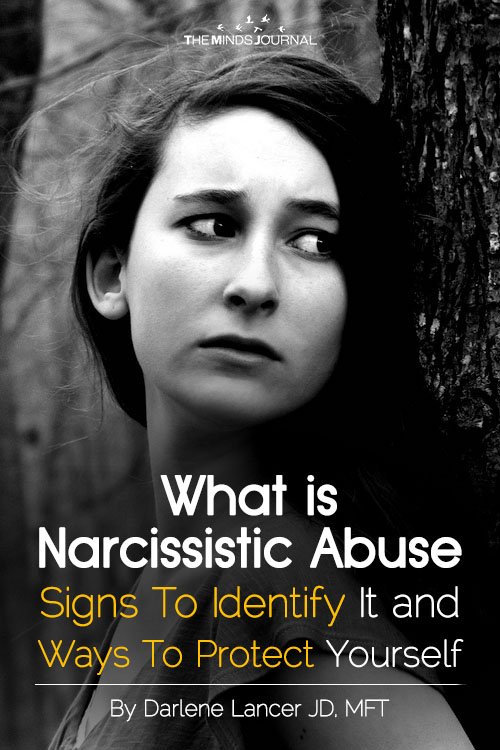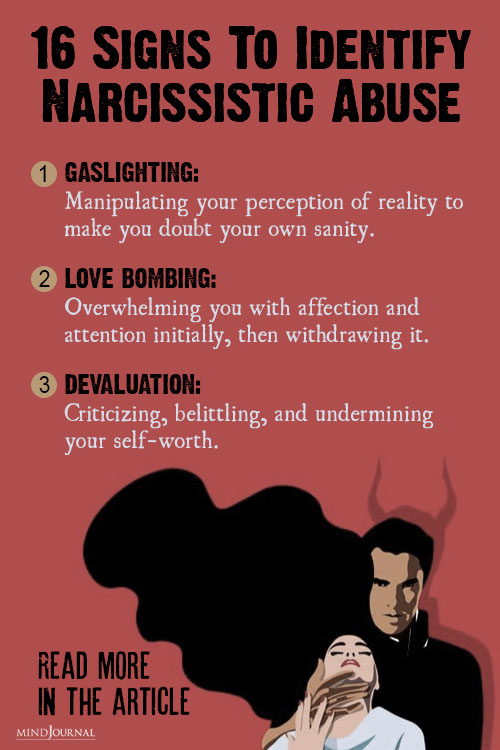People who go through narcissistic abuse know how mentally crippling and psychologically draining it can be. Narcissistic abuse can single-handedly destroy your confidence, and happiness, and make you lose their faith in human decency. To say that it is horrible is an understatement.
Narcissists don’t really love themselves. Actually, they’re driven by shame. It’s the idealized image of themselves, which they convince themselves they embody, that they admire.
But deep down, narcissists feel the gap between the facade they show the world and their shame-based self. They work hard to avoid feeling that shame. This gap is true for other codependents, as well, but a narcissist uses destructive defense mechanisms that damage relationships and their loved ones’ self-esteem.
Many of the narcissist’s coping mechanisms are abusive–hence the term, “narcissistic abuse.” However, someone can be abusive, but not be a narcissist.
Addicts and people with other mental illnesses, such as bipolar disorder and antisocial personality disorder (sociopathy) and borderline personality disorders are also abusive, as are many codependents without a mental illness. Abuse is abuse, no matter what is the abuser’s diagnosis.
If you’re a victim of abuse, the main challenges for you are:
- Clearly identifying it;
- Building a support system; and
- Learning how to strengthen and protect yourself.
What is Narcissistic Abuse?
Abuse may be emotional, mental, physical, financial, spiritual, or sexual. Here are a few examples of abuse you may not have identified:
1. Verbal abuse
Verbal abuse includes belittling, bullying, accusing, blaming, shaming, demanding, ordering, threatening, criticizing, sarcasm, raging, opposing, undermining, interrupting, blocking, and name-calling.
Note that many people occasionally make demands, use sarcasm, interrupt, oppose, criticize, blame, or block you. Consider the context, malice, and frequency of the behavior before labeling it narcissistic abuse.
Related: 19 Things A Narcissist Says and What They Really Mean
2. Manipulation
Generally, manipulation is the indirect influence on someone to behave in a way that furthers the goals of the manipulator. Often, it expresses covert aggression.
Think of a “wolf in sheep’s clothing.” On the surface, the words seem harmless – even complimentary; but underneath you feel demeaned or sense a hostile intent. If you experienced manipulation growing up, you may not recognize it as such. See my blog on spotting manipulation.
3. Emotional blackmail
Emotional blackmail may include threats, anger, warnings, intimidation, or punishment. It’s a form of manipulation that provokes doubt in you. You feel the fear, obligation, and or guilt sometimes referred to as “FOG”.
4. Gaslighting
Intentionally making you distrust your perceptions of reality or believe that you’re mentally incompetent.
Related: Top 10 Warning Signs You’re Being Gaslighted in Your Relationship
5. Competition
Competing and one-upping to always be on top, sometimes through unethical means. E.g. cheating in a game.
6. Negative contrasting
Unnecessarily making comparisons to negatively contrast you with the narcissist or other people.
7. Sabotage
Disruptive interference with your endeavors or relationships for the purpose of revenge or personal advantage.
8. Exploitation and objectification
Using or taking advantage of you for personal ends without regard for your feelings or needs.
Related: Anxiety Disorders Could Be Caused By Being Exposed To Narcissistic Abuse
9. Lying
Persistent deception to avoid responsibility or to achieve the narcissist’s own ends.
10. Withholding
Withholding such things as money, sex, communication or affection from you.
11. Neglect
Ignoring the needs of a child for whom the abuser is responsible. Includes child endangerment; i.e., placing or leaving a child in a dangerous situation.
12. Privacy invasion
Ignoring your boundaries by looking through your things, phone, mail; denying your physical privacy, or stalking or following you; ignoring privacy you’ve requested.
13. Character assassination or slander
Spreading malicious gossip or lies about you to other people.
14. Violence
This includes blocking your movement, pulling hair, throwing things, or destroying your property.
15. Financial abuse
Financial abuse might include controlling you through economic domination or draining your finances through extortion, theft, manipulation, or gambling, or by accruing debt in your name or selling your personal property.
16. Isolation
Isolating you from friends, family, or access to outside services and support through control, manipulation, verbal abuse, character assassination, or other means of abuse.
Narcissism and the severity of abuse exist on a continuum. It may range from ignoring your feelings to violent aggression.
Typically, narcissists don’t take responsibility for their behavior and shift the blame to you or others; however, some do and are capable of feeling guilt and self-reflection.
Malignant Narcissism and Sociopathy
Someone with more narcissistic traits who behaves in a malicious, hostile manner is considered to have “malignant narcissism.” Malignant narcissists aren’t bothered by guilt.
They can be sadistic and take pleasure in inflicting pain. They can be so competitive and unprincipled that they engage in anti-social behavior. Paranoia puts them in a defensive-attack mode as a means of self-protection.
Malignant narcissism can resemble sociopathy. Sociopaths have malformed or damaged brains. They display narcissistic traits, but not all narcissists are sociopathic.
Related: Who Is a Malignant Narcissist? Who Are The People They Target
Their motivations differ. Whereas narcissists prop up an ideal persona to be admired, sociopaths change who they are in order to achieve their self-serving agenda.
They need to win at all costs and think nothing of breaking social norms and laws. They don’t attach to people as narcissists do. Narcissists don’t want to be abandoned. They’re codependent on others’ approval, but sociopaths can easily walk away from relationships that don’t serve them.
Although some narcissists will occasionally plot to obtain their objectives, they’re usually more reactive than sociopaths, who coldly calculate their plans.
©Darlene Lancer 2017
Written by Darlene Lancer JD, MFT
Originally appeared on WhatIsCodependency.com












Leave a Reply